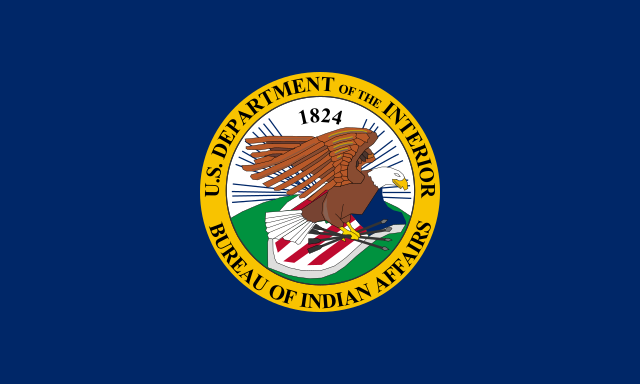WASHINGTON – On March 14, 2025, the White House rescinded 18 executive actions issued during the Biden administration, including a significant order intended to bolster tribal sovereignty and expand self-determination for the nation’s 574 federally recognized Tribal Nations. Among the orders repealed was Executive Order 14112, signed on December 6, 2023, which sought to reform the federal government’s approach to funding and support programs for Tribal Nations. The announcement was part of a broader policy shift under the Trump administration, which also revoked 78 previous Biden-era directives in January, signaling a comprehensive rollback of the prior administration’s policies.

Native American Heritage Month Event on 28 November 2023 [Image Credit: US Department of Education – CCA 2.0
Executive Order 14112 was a hallmark of the 2023 White House Tribal Nations Summit, where President Biden signed the directive in the presence of numerous Tribal leaders. The order recognized the historic harms inflicted by federal assimilation policies while highlighting the transformative progress achieved through self-determination over the past half-century. It aimed to streamline the often complicated and bureaucratic processes that Tribal Nations must navigate to access federal resources. By emphasizing respect for Tribal sovereignty, the order encouraged federal agencies to partner with Tribal Nations in administering programs, removing barriers, and acknowledging the unique needs of Native communities.
Specifically, the executive order instructed agencies to promote “compacting, contracting, co-management, co-stewardship, and other agreements with Tribal Nations that allow them to partner with the Federal Government to administer Federal programs and services.” It also directed federal departments to assess funding shortfalls and consult with Tribal leaders to ensure programs align with Tribal priorities. Furthermore, the order sought to reduce reporting burdens, increase the flexibility of funding use, and establish a centralized platform—known as the Tribal Access to Capital Clearinghouse—to help Tribal Nations locate and apply for financial opportunities. As of Saturday, a search of the clearinghouse’s database for “Alaska” yielded 696 results within a nationwide pool of 1,218 funding opportunities.
The policy was intended to address longstanding inequities that continue to hinder Tribal Nations’ ability to exercise full self-governance. “Today, Tribal Nations still face many barriers to fully exercise their inherent sovereignty, especially in federal funding programs,” the executive order noted. “Far too many of the federal funding and support programs that Tribes rely on are difficult to access, have overly burdensome federal reporting requirements, have unnecessary limitations, or impose requirements on Tribes that drain Tribal resources and undermine their ability to make their own decisions about where and how to meet the needs of their communities.”
Former Assistant Secretary for Indian Affairs Bryan Newland (Bay Mills Indian Community) spoke out against the revocation to Native News Online. “This Executive Order was intended to reduce government interference with how Tribes spend their money, and to ensure that federal agencies are actually meeting their legal obligations for Tribes,” Newland said. “It made the government more efficient for Indian people. Rolling back this Executive Order increases federal interference with local actions.”
The Biden executive order drew inspiration from a long legacy of self-determination advocacy, beginning in earnest with President Richard Nixon’s landmark policy shift in the 1970s. In his July 1970 Special Message to Congress on Indian Affairs, Nixon rejected policies that sought to terminate tribes or assimilate Native peoples. Influenced by his Southern California upbringing and mentorship by a Native coach at Whittier College, Nixon’s vision was shaped by both personal experience and the advocacy of prominent Native leaders like LaDonna Harris, a Comanche activist who pushed for recognition of tribal rights and sovereignty.

Flag of the United States Bureau of Indian Affairs. [Public Domain]
This change in philosophy culminated in the passage of the Indian Self-Determination and Education Assistance Act, which President Gerald Ford signed into law on January 4, 1975. The legislation marked a historic shift in federal-tribal relations, allowing Tribal Nations to administer federal programs independently. “It was a huge step forward because it recognized tribal sovereignty and allowed tribes to administer federal programs on their own terms,” said John Echo Hawk (Pawnee), founder and executive director of the Native American Rights Fund, during a recent Native Bidaske event celebrating the law’s 50th anniversary.
The repeal of Executive Order 14112 was part of Trump’s announcement titled Additional Rescissions of Harmful Executive Orders and Actions. Justifying the rescissions, Trump stated: “I have determined that the following additional rescissions are necessary to advance the policy of the United States to restore common sense to the Federal Government and unleash the potential of American citizens.” The rollbacks also included actions related to ensuring data-driven responses to public health threats like COVID-19, raising the minimum wage for federal contractors, supporting renewable energy initiatives, and promoting global LGBTQ+ rights.
Additionally, Trump signed an order Friday to eliminate several federal agencies, including the parent organization of Voice of America, effectively halting much of its international news coverage beginning Saturday.
The repeal of Executive Order 14112 represents not just a shift in administrative priorities but also a significant step back from the progress many Native leaders viewed as essential to strengthening Tribal self-determination and sovereignty in the 21st century. With its focus on equitable access, administrative reform, and government-to-government respect, the order had laid out a roadmap for a more responsive and responsible federal relationship with Tribal Country. Its revocation leaves many questions about the future direction of federal-tribal policy.
The Wild Hunt is not responsible for links to external content.
To join a conversation on this post:
Visit our The Wild Hunt subreddit! Point your favorite browser to https://www.reddit.com/r/The_Wild_Hunt_News/, then click “JOIN”. Make sure to click the bell, too, to be notified of new articles posted to our subreddit.